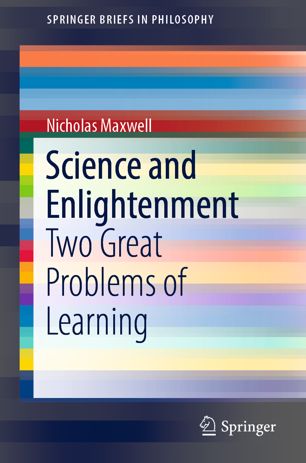

Most ebook files are in PDF format, so you can easily read them using various software such as Foxit Reader or directly on the Google Chrome browser.
Some ebook files are released by publishers in other formats such as .awz, .mobi, .epub, .fb2, etc. You may need to install specific software to read these formats on mobile/PC, such as Calibre.
Please read the tutorial at this link: https://ebookbell.com/faq
We offer FREE conversion to the popular formats you request; however, this may take some time. Therefore, right after payment, please email us, and we will try to provide the service as quickly as possible.
For some exceptional file formats or broken links (if any), please refrain from opening any disputes. Instead, email us first, and we will try to assist within a maximum of 6 hours.
EbookBell Team

5.0
30 reviewsThis book argues that two great problems of learning confront humanity: learning about the nature of the universe and about ourselves and other living things as a part of it; and learning how to become civilized. The author proposes that with the creation of modern science in the 17th century, the first problem was essentially solved. But the second problem has still not been solved today, and that combination of solving the first problem, but failing to solve the second one, puts us in a situation of unprecedented danger. All our current global problems are the result. The 18th century Enlightenment tried to solve the second great problem of achieving world enlightenment by learning from the solution to the first problem, but in implementing this idea, they made three serious blunders. These ancient blunders are still built into academia today. Correct the three blunders we have inherited from the Enlightenment, and we would have what we so urgently need: institutions of learning, universities and schools, rationally designed and devoted to helping us resolve our conflicts and global problems, and thus make progress towards a good, genuinely civilized world. Science and Enlightenment: Two Great Problems of Learning will interest a broad audience, ranging from academics, university students and teachers; journalists, politicians and general readers concerned about global problems and the fate of the world.